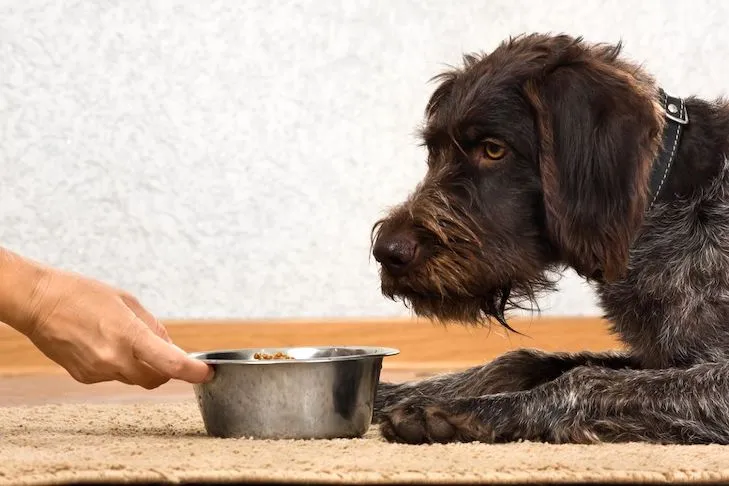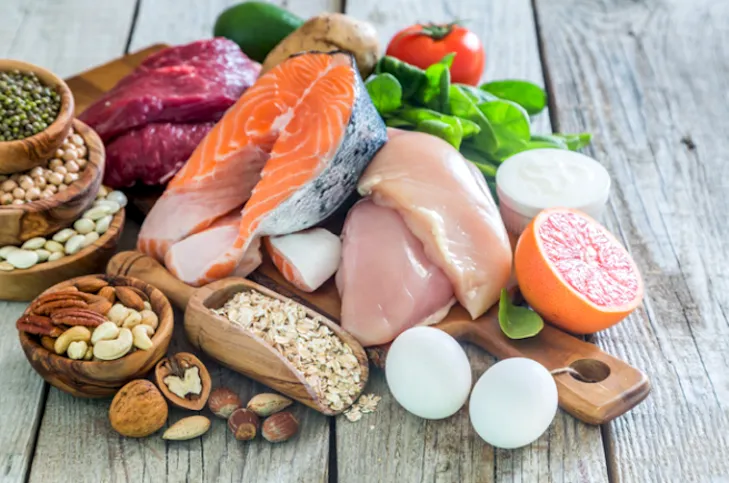Considering a homemade diet for your large dog can be a rewarding journey, but it requires careful planning and, most importantly, veterinary approval. While the internet abounds with recipes, many lack the nutritional rigor necessary for your dog’s health, especially for large breeds with unique dietary needs. Consulting your veterinarian or a veterinary nutritionist is the crucial first step to ensure your canine companion receives a balanced and complete diet. This is paramount for large dogs, whose growth rates and skeletal development can be particularly susceptible to nutritional imbalances, making “Homemade Dog Food Recipes Vet Approved For Large Dogs” not just a preference, but a necessity for their well-being.
The American College of Veterinary Nutrition (ACVN) emphasizes that a dog’s specific nutritional requirements are highly individual, depending on their age, size, health status, and breed. For large and giant breeds, factors like rapid growth, joint health, and susceptibility to certain orthopedic conditions mean that a homemade diet must be meticulously formulated. Dr. Jerry Klein, AKC chief veterinarian, cautions against homemade diets for dogs under one year old, stating, “If young dogs don’t receive the appropriate amount of calcium and phosphorus, significant bone abnormalities may result.” This risk is even higher for large breed puppies. Similarly, pregnant and lactating large breed dogs have heightened dietary demands that generic online recipes are unlikely to meet. Therefore, understanding the basics of a balanced diet and working closely with a professional is essential when preparing homemade dog food recipes with chicken or any other ingredient for your big friend.
 *A large dog enjoying a meal, emphasizing the importance of proper nutrition for bigger breeds.*
*A large dog enjoying a meal, emphasizing the importance of proper nutrition for bigger breeds.*
The ABCs of a Balanced Homemade Diet for Large Dogs
When you discuss a homecooked diet with an expert, having a foundational understanding of canine nutrition will be invaluable. A balanced diet for a large dog must include a precise combination of protein, fats, carbohydrates, fiber, vitamins, and minerals.
Protein: For large dogs, adequate protein is vital for maintaining muscle mass and supporting their larger frames. According to the ACVN, dogs require 10 specific essential amino acids that their bodies cannot produce, which are critical for energy production. Excellent protein sources include lean chicken, turkey (bones, fat, and skin removed), beef, lamb, and certain fish like salmon, whitefish, and herring. Pork can be included in limited amounts.
Fats and Fatty Acids: These are concentrated energy sources, particularly important for active large dogs. Animal fats and plant seed oils provide essential fatty acids that support cellular function, promote healthy skin and coat, and enhance food palatability. Plant-based oils such as corn, soybean, canola, and flaxseed oil, along with fish oil, are good sources. These fats also contribute to joint health, a common concern for many large breeds.
Carbohydrates: Dogs derive energy from carbohydrates, including sugars, starches, and dietary fibers. Sources like rice, pasta, oatmeal, and quinoa provide the necessary fuel. For large dogs, complex carbohydrates can help provide sustained energy without over-feeding.
Fiber: Dietary fiber is crucial for a healthy gastrointestinal (GI) system and for managing weight, which is important for large dogs prone to obesity. Good fiber sources include carrots, pumpkin, apples, dark leafy greens, brown rice, and flaxseed. If your dog has specific health issues like kidney disease, understanding appropriate fiber and other nutrient levels is critical, similar to selecting homemade treats for dogs with kidney disease.
Vitamins: Essential for growth and maintenance, vitamins must be provided in the correct quantities. Deficiencies can lead to health problems, but excessive amounts can also be dangerous. Key vitamins for dogs include:
- Vitamin A: Found in carrots and pumpkin.
- B Vitamins: Abundant in liver, green vegetables, and whole grains.
- Vitamin C: Present in fruits, vegetables, and organ meat.
- Vitamin D: Sourced from liver, fish, and beef.
- Vitamin E: Found in leafy green vegetables, liver, bran, and plant oils.
- Vitamin K: Present in fish and leafy green vegetables.
- Choline: Found in liver, fish, meats, and egg yolks.
Minerals: Large dogs particularly benefit from a balanced mineral intake to support their larger bones and systems. The 12 essential minerals include:
- Calcium and Phosphorus: For strong bones and teeth, found in tofu, green beans, broccoli, cauliflower, meat, and eggs. The calcium-to-phosphorus ratio is especially critical for large breed puppies.
- Magnesium, Potassium, Sodium, and Chloride: Essential for nerve impulse transmission, muscle contraction, and cell signaling, found in fruits, vegetables, and whole grains.
- Sulfur: For healthy skin, coat, and nails, found in meat, fish, and molasses.
- Iron: Supports red blood cells and the immune system, found in red meats and poultry.
- Iodine: For a healthy thyroid, found in dairy, kelp, and seafood.
- Zinc: Boosts the immune system and promotes healthy skin and coat, found in eggs, lamb, liver, and brewer’s yeast.
- Selenium: Enhances the immune system, found in meat, vegetables, seafood, and brown rice.
- Copper: Vital for healthy bone growth, found in whole grains, seeds, and seafood.
Water: Often overlooked, clean, fresh water is the most crucial ingredient in your dog’s diet. Always ensure your large dog has constant access to fresh water. A well-designed dog feeding station can help manage water and food access efficiently.
 *A close-up of a dog’s homemade meal, featuring a balanced mix of meat and vegetables.*
*A close-up of a dog’s homemade meal, featuring a balanced mix of meat and vegetables.*
Making the Transition to Homemade Dog Food for Large Breeds
Transitioning your large dog to a homemade diet requires a thoughtful and systematic approach to ensure their health and well-being.
Consult a Veterinarian or Veterinary Nutritionist: This cannot be stressed enough, particularly for large breeds. These experts will consider your dog’s age, size, health history, and breed-specific needs (e.g., joint predispositions) to help you identify or formulate a high-quality, tailored recipe. They can guide you through the complexities of meeting the increased nutritional demands of a larger dog.
Buying Ingredients: Just as you would for your family, pay close attention to the source, expiration dates, and labels of ingredients for your dog’s meals. High-quality, fresh ingredients are paramount for nutrient density and safety. For dogs with sensitivities, selecting appropriate ingredients is as vital as choosing hypoallergenic dog treats.
Making the Switch Gradually: A sudden change in diet, whether to homemade or a new commercial food, can upset your dog’s sensitive GI system. Over at least five to seven days, gradually mix increasing amounts of the new homemade food with the old food. This slow transition allows your large dog’s digestive system to adjust comfortably.
Follow the Recipe Diligently: Once you have a vet-approved recipe, adherence is key. A study by Tufts Cummings Veterinary Medical Center Clinical Nutrition Service revealed that only a small percentage of owners continued feeding the original nutritionally balanced diet recipe a year later. Minor substitutions or alterations can lead to nutritional deficiencies over time.
Clear Instructions and Preparation: The method of cooking ingredients—steaming, roasting, or boiling—can significantly impact nutrient content. The Journal of the American Veterinary Medical Association reported that a lack of clear instructions in many recipes often forces owners to make assumptions, potentially leading to nutritionally inadequate or even harmful long-term diets. Always seek out recipes with explicit preparation guidance.
Follow-Up and Monitoring: After the transition, closely monitor your large dog for any digestive changes such as softened stool, vomiting, or diarrhea, and consult your veterinarian if these occur. Regular weight monitoring is also essential to ensure your dog is receiving appropriate portions for their size, age, and energy level. Large dogs can quickly gain or lose weight, impacting their overall health and joint integrity.
Resources for the Homemade Dog Food Chef
Equipping yourself with reliable resources is vital for successfully providing vet-approved homemade dog food for your large dog.
- Your primary resource should always be your dog’s veterinarian, who possesses a comprehensive understanding of your pet’s health history and current condition.
- To find a veterinary nutritionist for a tailored homemade diet consultation, consult the Diplomate directory at www.acvn.org. Remote consultations are often available if a nutritionist is not in your local area.
- Online consulting services like BalanceIT, operated by veterinary nutritionists, can help formulate basic, nutritionally balanced recipes.
- “Ask the Nutritionist” at www.petdiets.com provides answers to common questions about pet nutrition.
ChefPaw by Innovet Pet Products offers a countertop Dog Food Maker designed to help prepare fresh, homemade food efficiently, aiming to save time and money while maximizing your dog’s nutrition. More information can be found at ChefPaw.com.
In conclusion, embarking on a homemade diet for your large dog is a significant commitment that requires expert guidance and a thorough understanding of nutritional principles. Prioritizing vet-approved recipes and meticulous preparation will ensure your beloved companion thrives on a diet perfectly tailored to their unique needs. Always consult with a veterinary professional to provide the best possible care.
